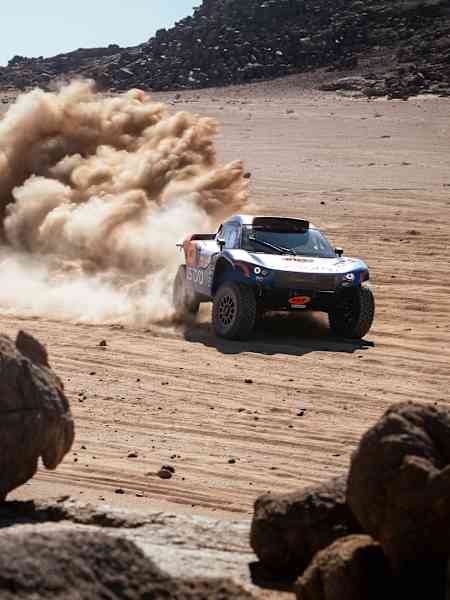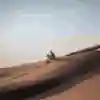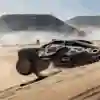
Rallye-raid
10 conseils pour maîtriser le désert du Rallye Dakar
Laia Sanz, légende du rallye Dakar, et Harith Noah, motard hors pair, ont élaboré un guide étape par étape afin de survivre dans le désert et de conquérir le rallye le plus difficile au monde.
En plein Rallye Dakar 2025, les meilleurs pilotes de rallye raid du monde sont plongés dans l'ultime épreuve sur roues. Cet événement légendaire, connu pour ses étapes éprouvantes et son terrain imprévisible, met au défi les concurrents des catégories voitures, motos, camions et quads de repousser leurs limites. Organisée du 3 au 17 janvier en Arabie saoudite, la 47e édition voit les coureurs parcourir 7 759 km au total, dont 12 étapes spéciales chronométrées.
Laia Sanz, légende espagnole du sport automobile, et Harith Noah, star indienne, figurent parmi les concurrents qui sont actuellement sur le rallye. Et vous savez quoi ? Sanz a dû abandonner pour la première fois suite à un tonneau de son véhicule (première fois qu'elle est contrainte d'abandonner alors participe à l'épreuve depuis 2011), alors qu'Harith Noah également déposer les armes après une fracture du poignet. C'est dire à quel point le Dakar est intraitable et difficile à dompter.
Malgré ces déconvenues, Sanz peut s’enorgueillir d'avoir terminé les 14 autres Rallyes Dakar auxquels elle a participé, avec une neuvième place en 2015, le meilleur résultat de sa carrière. Quatorze fois championne du monde FIM de trial féminin, l'Espagnole est passée avec succès de la moto à la voiture, apportant sa grande expérience et son approche stratégique à de nouveaux sommets. Noah est entré dans l'histoire en 2024 en devenant l'Indien le plus rapide de l'histoire du Dakar, en remportant le titre Rally2. Sa performance, qui s'inscrit dans la continuité de l'héritage de l'icône indienne du sport automobile CS Santosh, souligne son importance croissante sur la scène internationale.
Ici, le duo partage sa stratégie en 10 étapes pour conquérir les dunes. Leurs idées, fondées sur des années d'expérience et de respect pour les défis du Dakar, offrent une feuille de route pour réussir dans l'une des épreuves de sport automobile les plus difficiles au monde.
01
La préparation est essentielle
Noah revealed his fitness is a crucial component: "Last year, I worked on gaining a little extra weight to better adapt to the suspension on the bike, but after we figured out the suspension during Rallye du Maroc, I'm not as concerned about gaining weight anymore. I've been to the Red Bull Athlete Performance Center several times this year, which has really helped me out."
02
Consistency over speed
12 stages, which can last up to six hours at a time, mean you need to keep a positive mindset that focuses on endurance. Sanz explains: "The Dakar is a race, so it's a bit strange that the winner can sometimes not win a stage. You need to be fast, but you also need to be smart. It's such a complicated race, but I think that's what makes it so special."
03
Rhythm is everything
With so many other vehicles racing around you over the ever-present tricky terrain, focus and finding your own rhythm is key. Noah says: "I'm a really slow starter. It takes me about three days to start feeling comfortable on the bike and to perform properly. For example, at Rallye du Maroc this year I was completely exhausted after the first day. But by the second day I felt better and by the third day I felt like I could keep going for as many days as needed without getting tired."
04
Respect the desert
Never underestimate the desert - especially rookies - is something that has been the backbone of Sanz's success: "My advice is never go over your limit. Rookies arrive super motivated, but they must remember to respect the desert. Be careful and, if one day you feel quite slow, then just relax and know that tomorrow will be a better day."
Dans le désert, les choses peuvent vite se gâter : il faut le respecter
© Marcelo Maragni/Red Bull Content Pool
05
Minimise distractions
For many racers, creating a bubble around them is important to get as much out of the race as possible. Noah declars: "I don't check the race results during the event. This was a decision I made with my psychologist and we agreed it's the best approach for me. I also don't use any social media during the race. Someone else manages it for me."
06
Use cross-category experience
Switching up categories can often take you to the next Dakar level. Sanz adds: "I did 11 Dakar's on a bike, so I got so much experience in the dunes and you get to really understand the race. In my experience you can bring a lot of the strategies that work on bikes to racing cars at the Dakar."
07
Stay present
With each stage full of punishing kilometres, it is easy to let the mind drift. Noah recommends: "My focus is simple: ride one kilometre at a time. Just ride as well as I can. Whether I finish 30th, 10th or anywhere else, I need to accept it. That's my mantra: ride in the now. Don't let what's going to happen or what's already happened affect you."
08
Positivity is key
"Even if you have a tough start and find yourself at the back, you must stay positive," says Sanz. " Wait for your moment. This is a race where so many things happen and you need to make sure you avoid any big mistakes. You will have bad stages, but you must keep going."
09
Age is just a number
Age is not a barrier either. Dakar history is packed with older winners, even into their sixties. Sanz says: "Experience is important. It makes me happy to see Carlos Sainz still winning, because it means that I still have time! I know Carlos and how much he trains to stay in shape to race. There's so much hard work that goes on behind the scenes."
10
Savour every moment
Above all, relish each and every day however gruelling. Noah says: "First place in Rally2 was never part of the plan. Winning is obviously a huge achievement, but the most amazing part was standing on the Dakar podium and receiving that trophy. That was an unbelievable feeling."
Fait partie de cet article














